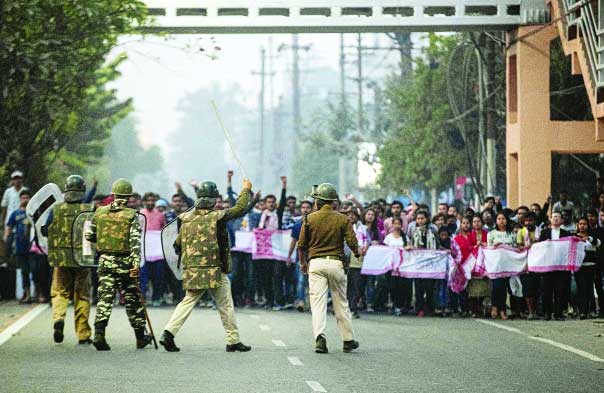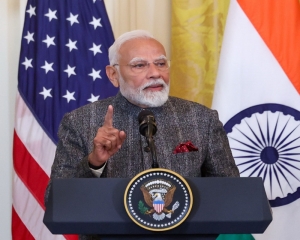The domino effect of protests over fee hikes and citizenship law shows that a mass student movement may be possible
The protests over the new Citizenship Act, which promises religion-based acceptance of refugees and excludes the concerns of minorities and indigenous people, may congeal as a mass student movement that’s rearing its head across the country in a manner reminiscent of the anti-reservation stir of the 90s. As the young Assamese stood up for their linguistic and cultural pride, one that has been threatened since colonial times by waves of privileged Bengali-speaking settlers, their marginalisation has found echoes across the country. Students at various colleges and universities, even in faraway Delhi, are out to challenge not just the autocracy of the ruling regime but occupy the space for balance, humanism and logic that has been vacated by civil society, Opposition leaders and rationalists. This confluence of students, therefore, comes from generational solidarity, from their stakeholdership in an India that is being created by selfish politics but will leave them suffering the consequences and unlearning what we have raised them to believe, to hold the establishment to account. Perhaps, it is getting endorsement because of the silence from a coopted majority. For the new Citizenship Act is not about reimagining India in a positive way but about reconstructing on ruins and relics of our civilisational foundations. It is not about denying immigration rights to Muslims but the selective culling of whom we want on our land that goes against the grain of the Constitution, one of the best documents that guarantees our citizenry equality. It is about creating a fear psychosis among the majority community that for the first time believes it has been a victim of parasitic minorities, no matter how small their numbers. It is about a One India based on Hindu nationalism that disregards, as in the North-east, the emotions of locals who have over the years reclaimed their political rights as national parties have merrily played around with demographics, encouraging immigration for votebanks, first Muslim, now Hindus. It is about upending stability that has been hard-earned in a diverse India. In that sense, the BJP has, by fomenting disunity, probably gifted a plank of unity that might just lead to a transformative and revolutionary student movement. If the mass coalescence following the Nirbhaya rape, the Dalit atrocities, the Rohith Vemula suicide and fee hikes at institutions is any indication, then the young are getting restive. If the 90s fed the drive for economic empowerment in a globalised world, then millennials are looking at value-creation of a different kind, one that keeps them connected to their identity than be submerged by the homogeneous hold of power. One that is not intellectual fadism of campus politics but can be carried into the real world, one that is not just anger against the system but about claiming it.
Perhaps this is the reason why students in Assam, unlike the anti-outsider movement of the late 1970s and early 80s, are spontaneously coming together as an amorphous force. They have demonstrated peacefully by and large through blockades, gatherings and processions. It is the police clampdown which has been harsh in comparison, both in the State and even in Delhi. The All Assam Students’ Union (AASU) may be leading the protests like the old times but has been joined by university students and even farmers and tribals. And so far they have decided to stay away from politicisation by national parties, be it the BJP or the Congress. Technology and media outreach have helped mobilise support, scale up the new law as a transnational issue and has even inducted peers in the diaspora. Student movements in India today may begin local but then draw traction in the broader context. This is the reason why the JNU fee hike agitation spread to all other institutions and became a swell of anger against fee hike in the higher education system in general. The Hok Kolorob movement in Jadavpur University, against the abrasive arrogance of the VC, had a domino effect with demonstrations being staged across India, including Delhi, Mumbai, Hyderabad and Bengaluru. But in recent times, it is the Hong Kong students’ protest, with human chains, night vigils and Nelson Mandela songs, whose innovation and energy have even compelled a totalitarian China to take a step back. The good part about this non-violent resistance against the regime was that it could not be demonised by the establishment but weaponised the entire world’s sympathy. In the same way, the new wave of home-grown student movements could very well capture the national imagination. Once young people have freed themselves from State fear, then we may yet reap a true democratic dividend.



























